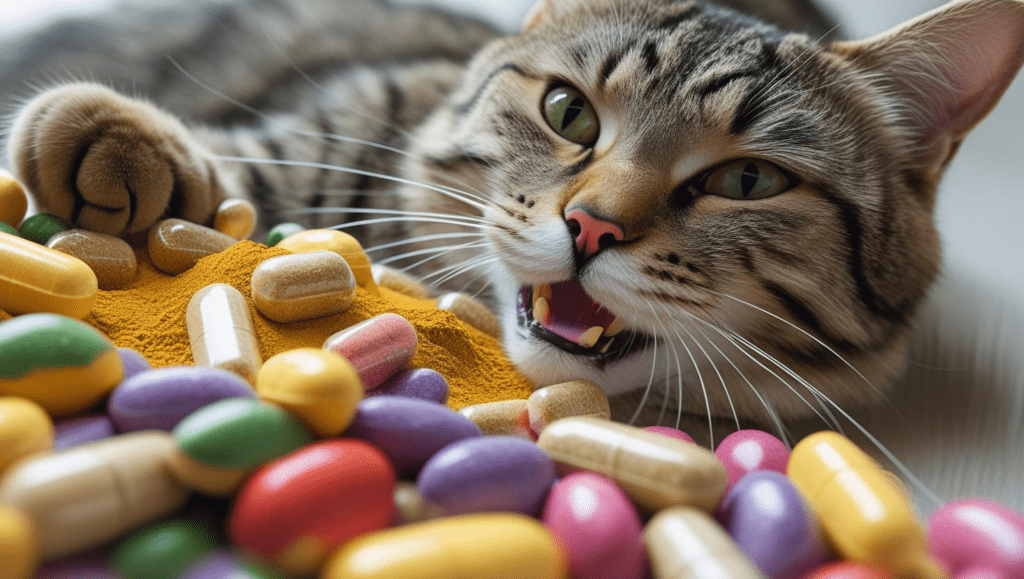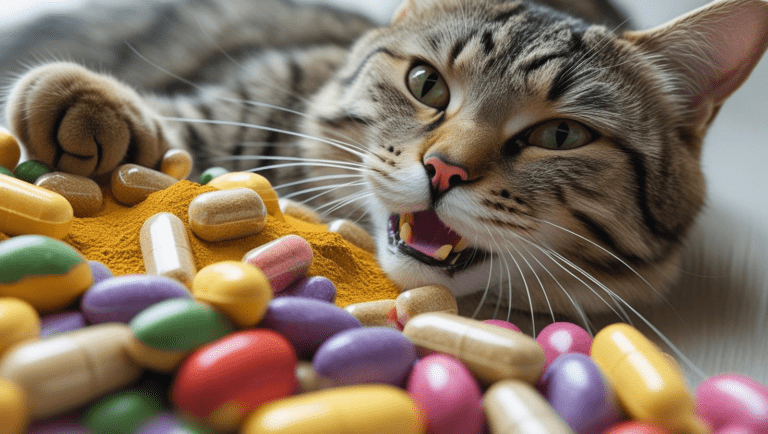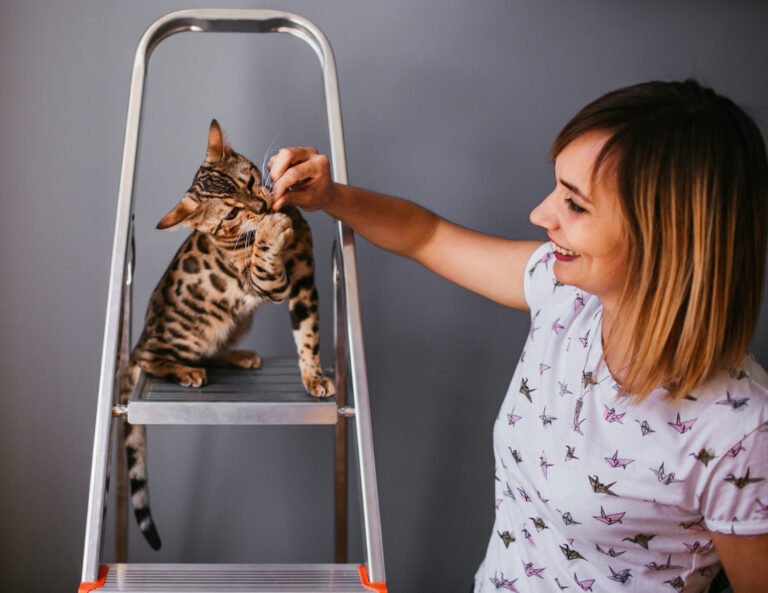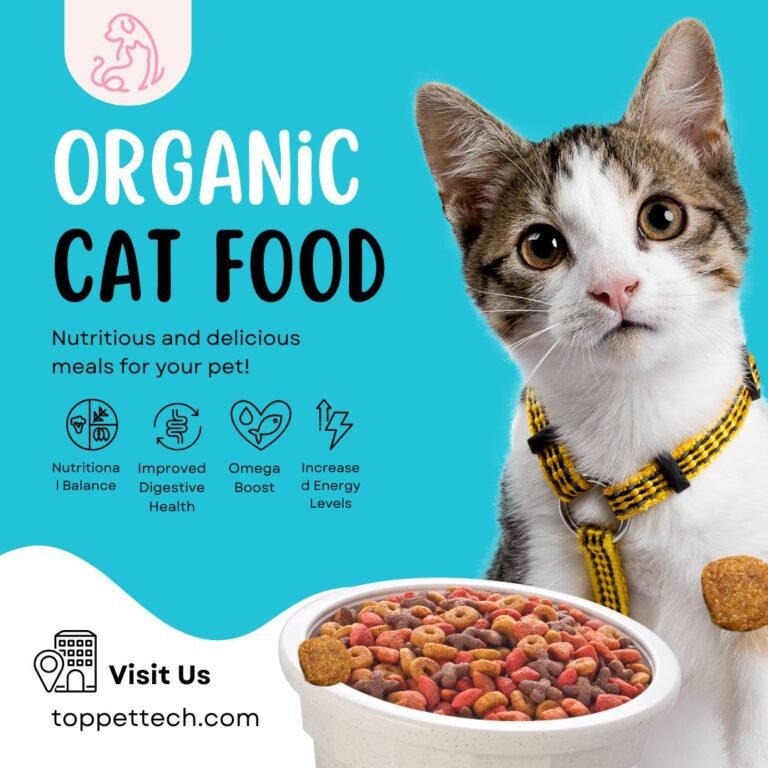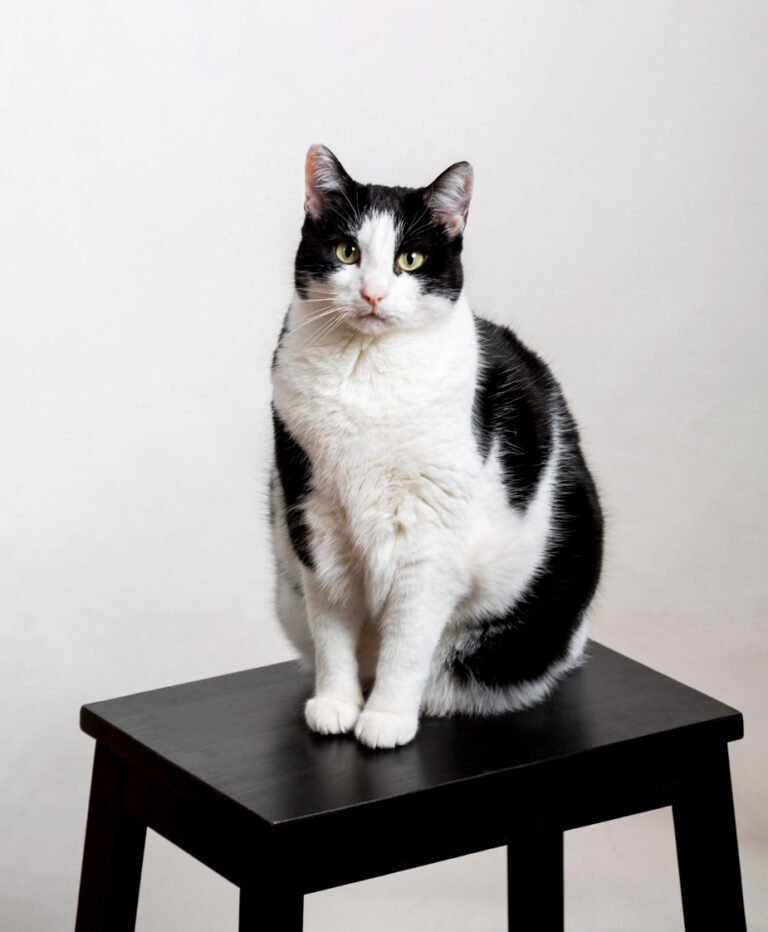As pet parents become more proactive about the well-being of their furry companions, interest in cat nutrition, including supplements and vitamins, has grown significantly in recent years. Whether you’re feeding your feline friend a commercial diet or preparing food at home, you might be wondering if your cat needs additional nutrients to stay healthy.
Before you make a trip to your local pharmacy or online pet store, it’s essential to understand the difference between human and animal supplements—and why only veterinarian-approved, cat-specific supplements should be considered.
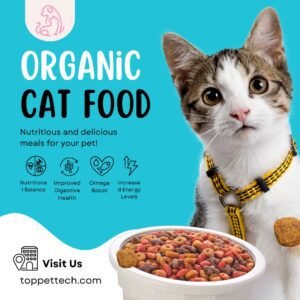
Are Supplements Safe for Cats?
Cats have very specific dietary needs, and giving them a supplement meant for humans or even dogs can lead to serious health complications. Many over-the-counter vitamins and minerals designed for people contain ingredients that can be toxic to cats or supplied in incorrect doses.
Even supplements marketed for dogs can cause adverse effects in felines, due to differences in metabolism and organ sensitivity. For this reason, it’s never a good idea to share supplements across species. Always consult your veterinarian before adding any kind of supplement to your cat’s daily routine.
Does My Cat Need Supplements?
Cats that are eating a complete and balanced commercial diet—especially one approved by the Association of American Feed Control Officials (AAFCO)—usually receive all essential nutrients, vitamins, and minerals needed for healthy growth and maintenance.
However, not all cats have the same lifestyle or medical history. Cats on homemade or raw diets, or those managing chronic illnesses or age-related conditions, might require extra nutritional support. If your cat is experiencing mobility issues, skin irritation, digestive discomfort, or behavioral changes, a targeted supplement could offer much-needed relief.
Who Regulates Pet Supplements in the USA?
To ensure that cat supplements meet quality and safety standards, look for products that carry the National Animal Supplement Council (NASC) Quality Seal. This nonprofit organization was established to regulate the animal supplement industry. Its guidelines oversee raw materials, labeling, and manufacturing standards. Choosing supplements with this seal provides assurance that the product is both safe and effective for your pet.
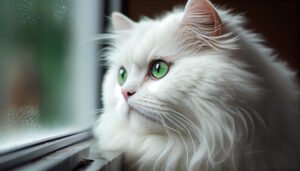
Types of Cat Supplements and What They Do
Cat supplements can help address a wide range of health concerns. Here’s a breakdown of the most common types:
1. Multivitamins for Cats
Multivitamins are formulated to provide cats with essential nutrients they may not be getting from food alone. Some popular ingredients include:
-
Taurine – This amino acid is critical for maintaining proper heart function and vision.
-
B-Complex Vitamins – These vitamins support red blood cell production, nervous system health, and digestion.
-
Prebiotics & Probiotics – These promote gut health by supporting healthy bacterial balance.
-
Iron – Prevents anemia by aiding in the production of hemoglobin in red blood cells.
-
Electrolytes – Regulate hydration, muscle function, and nerve signaling.
-
Omega-3 Fatty Acids – Support healthy skin, coat, brain development, and may reduce inflammation.
Even if your cat is generally healthy, multivitamins can offer added protection against environmental stressors and age-related deficiencies.
2. Joint Health Supplements
Joint supplements are especially useful for senior cats or those with arthritis, hip dysplasia, or other mobility issues. Common ingredients include:
-
Glucosamine – Helps rebuild cartilage and cushions joints.
-
Chondroitin Sulfate – Supports cartilage elasticity and hydration.
-
MSM (Methylsulfonylmethane) – A natural anti-inflammatory that can relieve pain.
-
Green-Lipped Mussel Extract – A marine-based ingredient that reduces inflammation.
-
Omega-3 Fatty Acids – Aid in reducing stiffness and improve joint flexibility.
These supplements can be part of a preventive wellness routine or used to support cats already diagnosed with chronic joint conditions.
3. Skin and Coat Supplements
Dry skin, itching, and excessive shedding are signs that your cat might need additional nutrients. Fatty acid supplements are commonly used to promote a healthy skin barrier and reduce inflammation.
-
Omega-3 (ALA, EPA, DHA) – Found in fish oils, these promote glossy fur and reduce itching.
-
Omega-6 Fatty Acids – Maintain skin cell health and hydration.
Keep in mind that fatty acids are calorie-dense, so dosage matters. Overuse may lead to weight gain or digestive upset.
4. Calming & Anxiety Relief Supplements
Cats are highly sensitive animals, and many suffer from anxiety caused by loud noises, separation, or changes in environment. Stress-relief supplements often include:
-
L-Tryptophan – Boosts serotonin, improving mood and sleep.
-
Alpha-Casozepine – A milk-derived protein with calming effects.
-
Synthetic Pheromones – Mimic natural feline pheromones to signal safety and calm.
-
B Vitamins – Support nervous system health.
-
GABA (Gamma-Aminobutyric Acid) – Helps calm the brain and reduce anxiety.
-
Herbal Blends – Such as chamomile or valerian root, used to promote relaxation naturally.
These supplements can help during vet visits, traveling, or when introducing a new pet to the home.
5. Immune Support Supplements
A strong immune system is key to keeping cats healthy and resisting disease. Supplements for immune support typically contain:
-
L-Lysine – Helps cats fight symptoms of feline herpes virus, especially in young or shelter cats.
-
Antioxidants – Including Vitamin C, E, and selenium, which fight free radicals that damage cells and tissues.
Cats with chronic respiratory issues or recurrent infections may especially benefit from these supplements.
6. Digestive Health Supplements
Digestive supplements help restore gut balance and relieve discomfort caused by GI issues. These include:
-
Probiotics – Promote a healthy balance of intestinal bacteria, improve digestion, and reduce symptoms like bloating or diarrhea.
-
Prebiotics – Serve as food for healthy bacteria, enhancing their effectiveness.
-
Hairball Remedies – Often in gel form, these lubricate the digestive tract to help hairballs pass more easily. Some formulas contain herbs for additional digestive support.
These supplements can be valuable for cats with chronic vomiting, irregular bowel movements, or poor appetite.
7. Senior Cat Supplements
Aging cats require specialized care. As they grow older, they may develop cognitive decline, joint pain, or weakened immune systems. Senior supplements typically include:
-
Glucosamine & Chondroitin – To support aging joints.
-
Antioxidants – Aid memory and slow cognitive decline.
-
Probiotics – Improve digestive health and nutrient absorption.
-
Omega-3 Fatty Acids – Help reduce inflammation and support brain function.
Adding a senior-specific supplement can help maintain quality of life and reduce discomfort in your aging pet.
Choosing the Right Supplement: Vet Advice Is Crucial
While many supplements are available over the counter or online, not all are created equal. Dosage, ingredients, and quality can vary widely between brands. That’s why it’s essential to consult your veterinarian before starting your cat on any supplement, even if it’s labeled “natural” or “safe.”
Your vet will assess your cat’s overall health, lifestyle, and dietary needs, and recommend the right formulation and dosage. They may also guide you toward trusted brands that comply with NASC or AAFCO standards.

